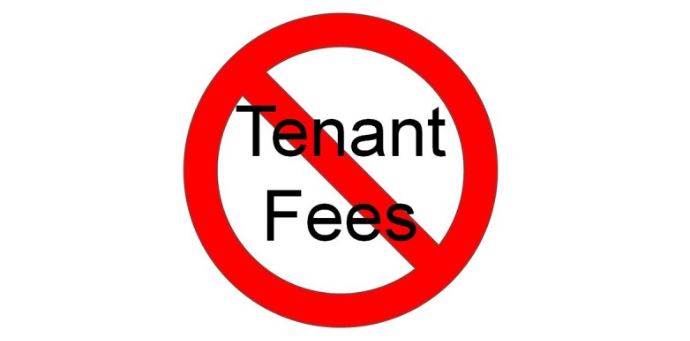Ask Tenants blog

This is a blog discussing tenancy fees ban which is in force from 1st of June 2019. I don’t know about you but I am thrilled that the tenancy fees ban has finally been brought in. Better late than never, am I right?!
As somebody who has been renting in London for many years now, I know that I – like many others – will have had to spend hundreds of pounds on landlords and letting agencies for menial tenancy tasks that I often end up having to do myself anyway.
Whether it be paying for reference forms, holding deposits or admin costs to cover lost keys, tenancy fees can mount up, leaving most of us renters feeling like we’ve got a pretty sour deal. Fortunately, thanks to Phillip Hammond’s 2017 Tenants Fee Draft Bill, those days will soon be a thing of the past, and the money we owe our landlords or letting agencies will become significantly less.
If you’re feeling a little confused as to what exactly this tenancy fee ban means for you, don’t worry – I’m here to break it down for you. Let’s go through it bit by bit.
What even are tenancy fees?
Let’s clear something up – tenancy fees are an additional charge on top of the rent and security deposit. They are not a part of that figure, as they relate to extra fees that agents or landlords charge for admin tasks such as credit checks, referencing or assigning a guarantor.
Prior to the ban coming in, renters were having to pay approximately £300 for admin charges, between £30 and £75 on referencing, £60 or more on guarantor charges and £150 on check-in fees. That all adds up to over £500 – a sum which had to be paid BEFORE you were even guaranteed the property you wanted. Crazy, I know.
In essence, the Tenants Fee Draft Bill – which became active for new tenants as of June 1st, 2019 – means that agents will no longer be able to charge renters for the fees mentioned above, as well as those listed here:
- Credit checks.
- Property inventories.
- Cleaning services when vacating the property.
- Gardening services.
- Renewal and exit fees.
- Defleaing a property (if you have a pet).
The bill will, therefore, save you a ton of money both before you move into a place, as well as while you’re living there (since you won’t have to pay renewal or cleaning fees).
Sounds great, but how will agents make up the lost income?
Good question. Many people initially worried that agents would simply respond to the lost income by charging landlords more money and, in response, landlords would then increase the rental price, thus making the whole tenant’s fee bill redundant. Fortunately, that doesn’t look likely to happen.
Scotland implemented the ban on tenant fees eight years ago and only 2% of landlords have increased their rental price as a result. The same trend looks likely to happen in England and Wales, with very few landlords likely to up their fees. After all, the more they charge, the less likely they will be to find somebody willing to pay that price. Having a vacant property is literally a landlord’s worst nightmare, so they will avoid it if they can.
Agents will, therefore, have to think up smarter ways to increase their revenue which doesn’t result in either landlords or tenants having to payout.
So, what fees will I still have to pay?
You will still be liable to pay a security deposit, but the new rules clarify that this can’t be over six weeks (i.e. one and a half month’s rent). You will also need to pay a holding fee to secure a place, although this will be deducted from the aforementioned security deposit.
There’s also the rent (obviously) and utility bills you’ll still be responsible for, as well as any fees for late or non-payments. For a complete breakdown of what you are liable to pay, please see below:
- Monthly rent.
- Security Deposit (maximum of six weeks).
- Holding Deposit.
- Defaulting on the rent.
- Utilities (gas, electric, broadband, water).
- TV Licence.
- Council Tax.
- Adding a new tenant (maximum of £50).
- Terminating the tenancy at tenant’s request.
What if I was already renting before the ban was brought in?
If you were already in a tenancy contract before the ban was brought in to place, unfortunately, the law won’t apply to you until 1st June 2020, or until your current tenancy agreement runs out – whichever comes first.
It really depends on the agreement you have in place with your landlord – more or less whatever that states will remain true until it expires. Landlords and letting agents will therefore still be able to charge for any and all of the fees that are now banned, so long as they are already included in your current tenancy agreement.
What happens if my landlord still charges me anyway?
Legally, they’re not allowed to after the tenancy fee ban was live on the 1st of June 2019. And, if they do, they will face a £5000 penalty fine as a consequence and will be placed on a database filled with banned landlords.
If they, or your letting agent, request money from you for one of the banned tenancy fees listed above, don’t pay it – regardless of how much pressure they put on you. It’s illegal for them to even ask.
—
This blog is written by our guest writer Annie Button. Many thanks to Annie for keeping our readers informed.


Sign in or Register to Comment